Jump To Section
Stress is something we all experience, whether it’s a hectic work schedule, family pressure, or an important event on the horizon. While we’re all familiar with the mental strain stress can bring, its physical effects on the body—especially the skin—are often overlooked. One common issue many people face during stressful times is acne. Let’s take a closer look at the science behind stress-induced acne and how to manage it effectively.

How Stress Contributes to Acne
When we’re stressed, the body’s natural response is to release cortisol, a hormone designed to help us cope with ‘fight or flight’ situations. While this was essential for our ancestors facing life-threatening situations, modern-day stressors (like work deadlines, financial pressures, or relationship issues) also trigger this response.
Cortisol has a direct impact on the skin by stimulating the sebaceous glands to produce more oil. This increased oil production can clog pores, trap dead skin cells, and create an environment where acne-causing bacteria thrive. As a result, you may notice breakouts, especially during periods of heightened stress. Moreover, stress can make the skin more reactive and sensitive, exacerbating inflammation. This can contribute to the development of acne or worsen existing breakouts.

It’s also important to note that acne isn’t just a teenage problem, as many people assume. In fact, over 3% of adults over 35 experience acne, proving that this skin condition is not exclusive to adolescents. As humans, we all experience stressful situations throughout our lives, regardless of age, making it crucial to manage stress effectively. By addressing both the stress and its effects on your skin, you can better control acne outbreaks at any stage of life.
Click here to learn more about teenage acne.
Click here to learn more about adult acne.

Stress Acne vs. Regular Acne: What’s the Difference?
Although acne may seem like a universal problem, stress-induced acne tends to behave a bit differently. It’s often more common during periods of stress and typically manifests on the T-zone, which includes the forehead, nose, and chin. This is because these areas of the face have a higher concentration of sebaceous glands, making them more susceptible to the effects of cortisol.
On the other hand, regular acne can develop anywhere on the face or body and may be due to a range of factors such as hormonal changes, genetics, or incorrect skincare. Unlike stress acne, it doesn’t necessarily correlate with stress levels. To learn more about other causes of acne click here.
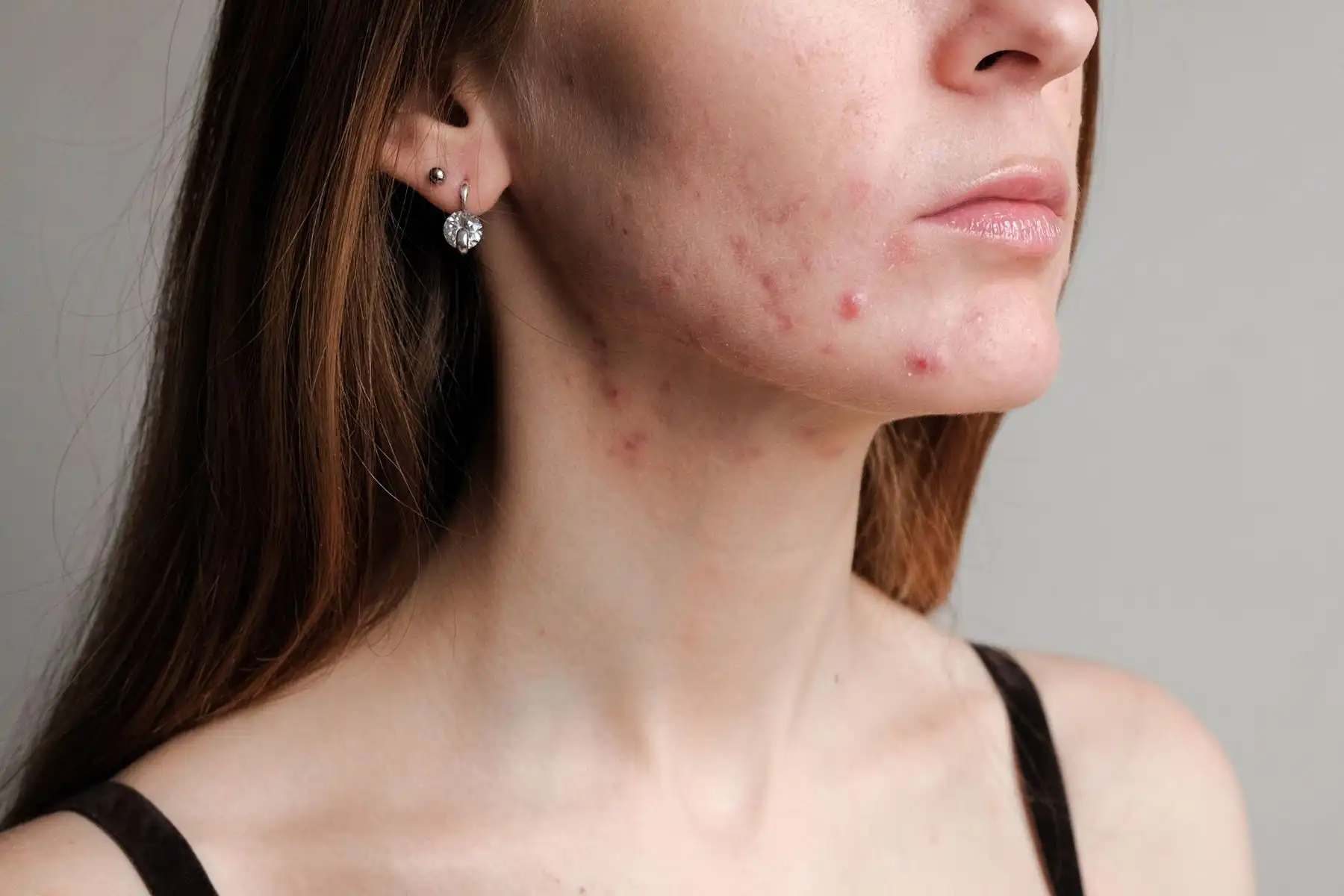
Breaking the Stress-Acne Cycle
One of the biggest challenges with stress-induced acne is the cyclical nature of the problem. Stress triggers acne, and in turn, acne can increase stress. The presence of breakouts can lead to more anxiety, which raises cortisol levels and worsens acne.
Breaking this cycle requires addressing both the mental and physical factors contributing to the issue. Managing stress effectively can prevent acne flare-ups, while treating acne can reduce the emotional toll it takes. Let’s explore ways to manage both.
Stress Management Techniques for Healthier Skin
1. Exercise
Regular physical activity is one of the best ways to combat stress. Exercise releases endorphins, the body’s natural stress relievers, and helps to reduce cortisol levels. Whether it’s a brisk walk, yoga, or a workout session, find an activity that you enjoy and make it part of your routine. Your skin will benefit from the reduction in stress hormones and the improved blood flow that exercise promotes.

2. Mindfulness and Meditation
Taking time to relax and focus on your breathing can have significant benefits for stress management. Mindfulness and meditation are proven techniques for calming the mind, which in turn can help reduce cortisol levels. Apps like Headspace or Calm are great tools for beginners. By incorporating these practices into your daily routine, you’re giving your skin a break from stress-related flare-ups.

3. Social Support
Maintaining strong social connections is essential for managing stress. Speaking to a friend, family member, or even a professional can help release pent-up tension. Laughter and social interactions lower stress levels, making it easier to manage acne flare-ups.

Managing Acne: Skincare and Lifestyle Changes
While stress management is key to controlling stress acne, the right skincare routine is just as important. Here are some tips to help you keep acne under control during stressful times:
1. Use Gentle, Non-Comedogenic Skincare Products
Avoid harsh cleansers or exfoliants that can irritate the skin. Opt for gentle, non-comedogenic (won’t clog pores) products, including a mild cleanser, fragrance-free moisturiser, and acne treatment products with proven ingredients like benzoyl peroxide or salicylic acid. Click here to learn more about which ingredients matter most in acne skincare products.

2. Follow a Healthy Diet
Your diet plays a significant role in managing acne. While stress is a major factor, certain foods can also contribute to flare-ups. Limit your intake of sugar, dairy, and processed foods, which are often linked to acne. Instead, focus on a balanced diet full of fruits, vegetables, whole grains, and lean proteins. Omega-3 fatty acids, found in foods like fish and flaxseeds, can also help reduce inflammation in the skin.

3. Get Enough Sleep
Stress can disrupt your sleep, but poor sleep quality can also worsen acne. Ensure you’re getting enough rest each night, as your skin repairs and rejuvenates itself while you sleep. Aim for at least 7-8 hours of quality sleep to allow your body and skin to recover from daily stressors.
4. Consistent Skincare Routine
Maintaining a consistent skincare routine is key to managing teenage acne. We recommend three key products for a simple yet effective daily routine. Click here to learn more about our La Roche-Posay Effaclar Duo routine and how it can help maintain clearer skin.
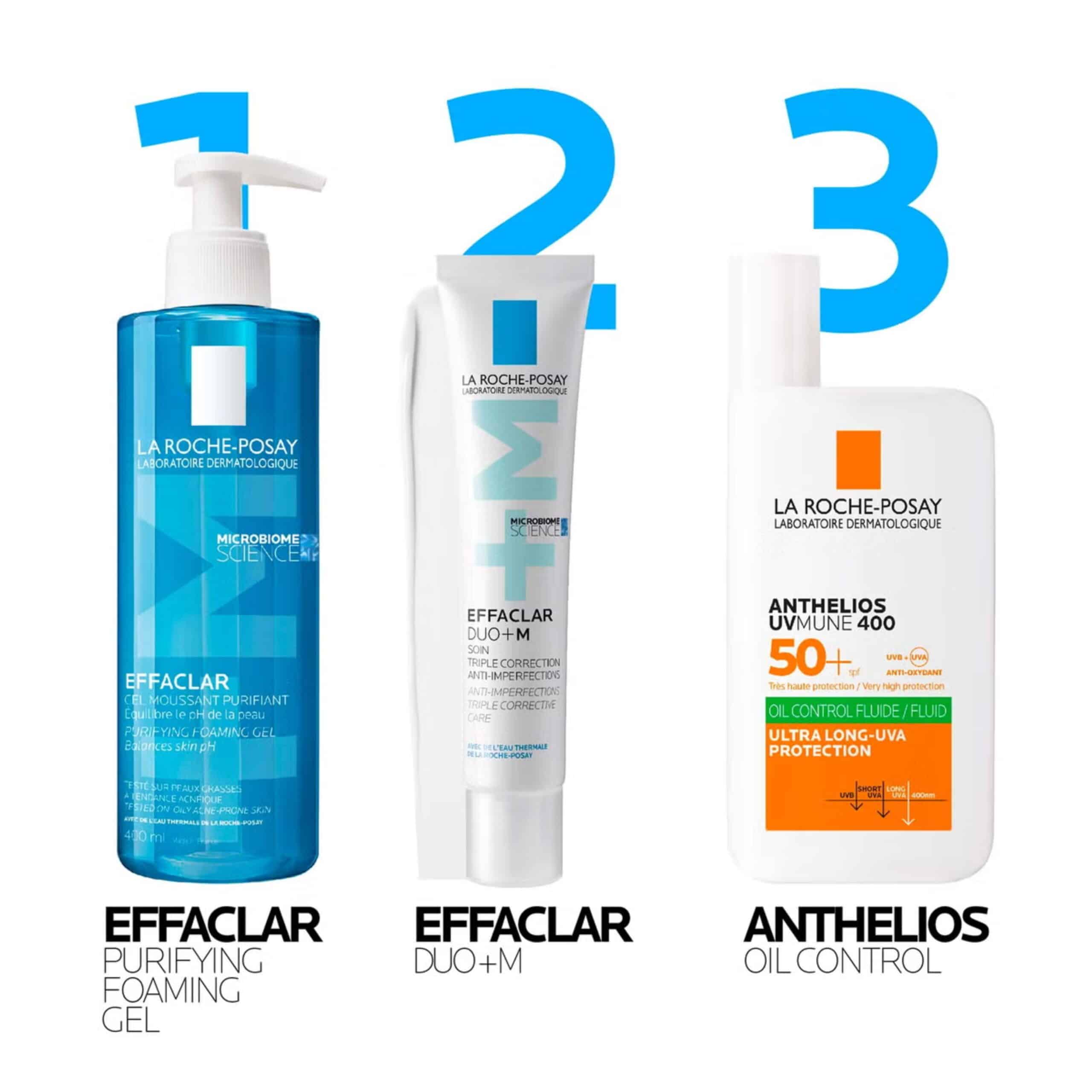
5. Advanced Treatments
Managing Acne: Treatments such as HydraFacials, skin peels and LED light therapy can help clear breakouts, reduce inflammation, and prevent future acne. These treatments complement your skincare routine by targeting deeper layers of skin for more effective results. Click here to read more about our acne treatment plans.
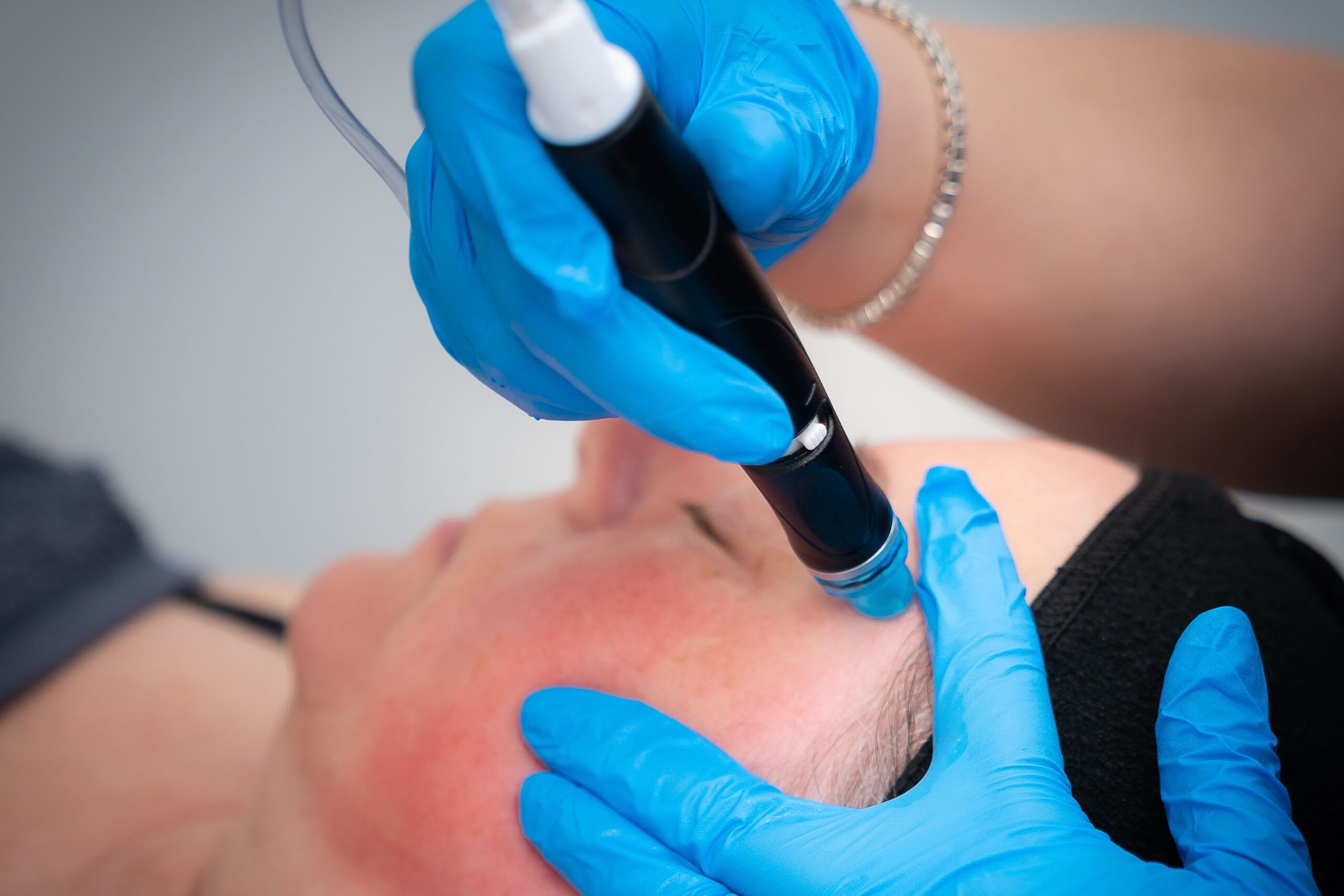
Managing Acne Scars: For acne scars, advanced treatments like microneedling and skin peels stimulate collagen production and improve skin texture. These treatments also help fade hyperpigmentation and smooth out scars. Click here to read more about our acne scar treatment package.
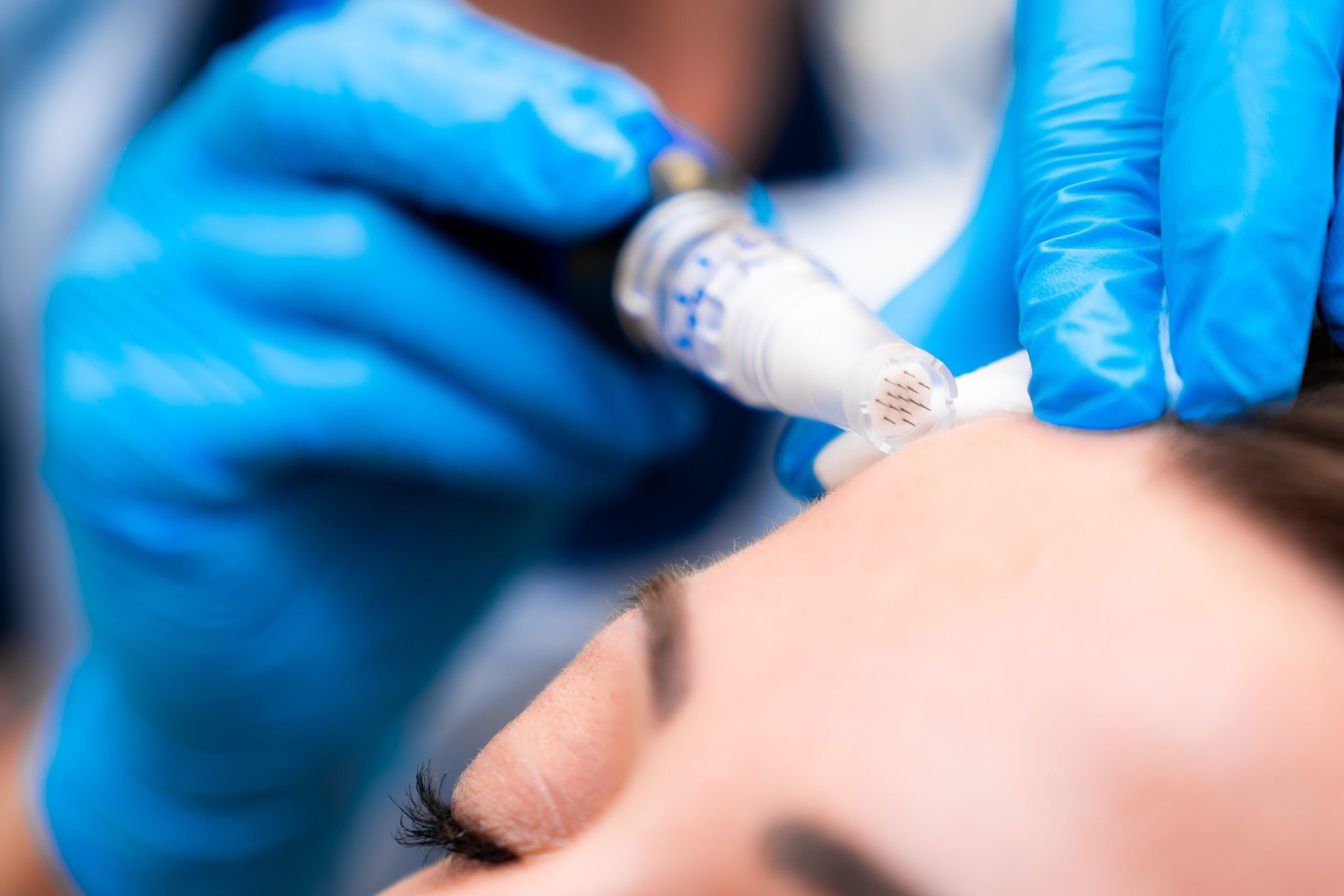
Seeking Professional Help
Sometimes, managing stress and acne on your own may not be enough, especially if breakouts are persistent or severe. Consulting a dermatologist can provide valuable insights and treatment options tailored to your skin’s needs. A dermatologist can recommend a combination of topical treatments, medications, or procedures to control acne and reduce inflammation. Click here to learn more about prescription medications and topical treatments for acne.
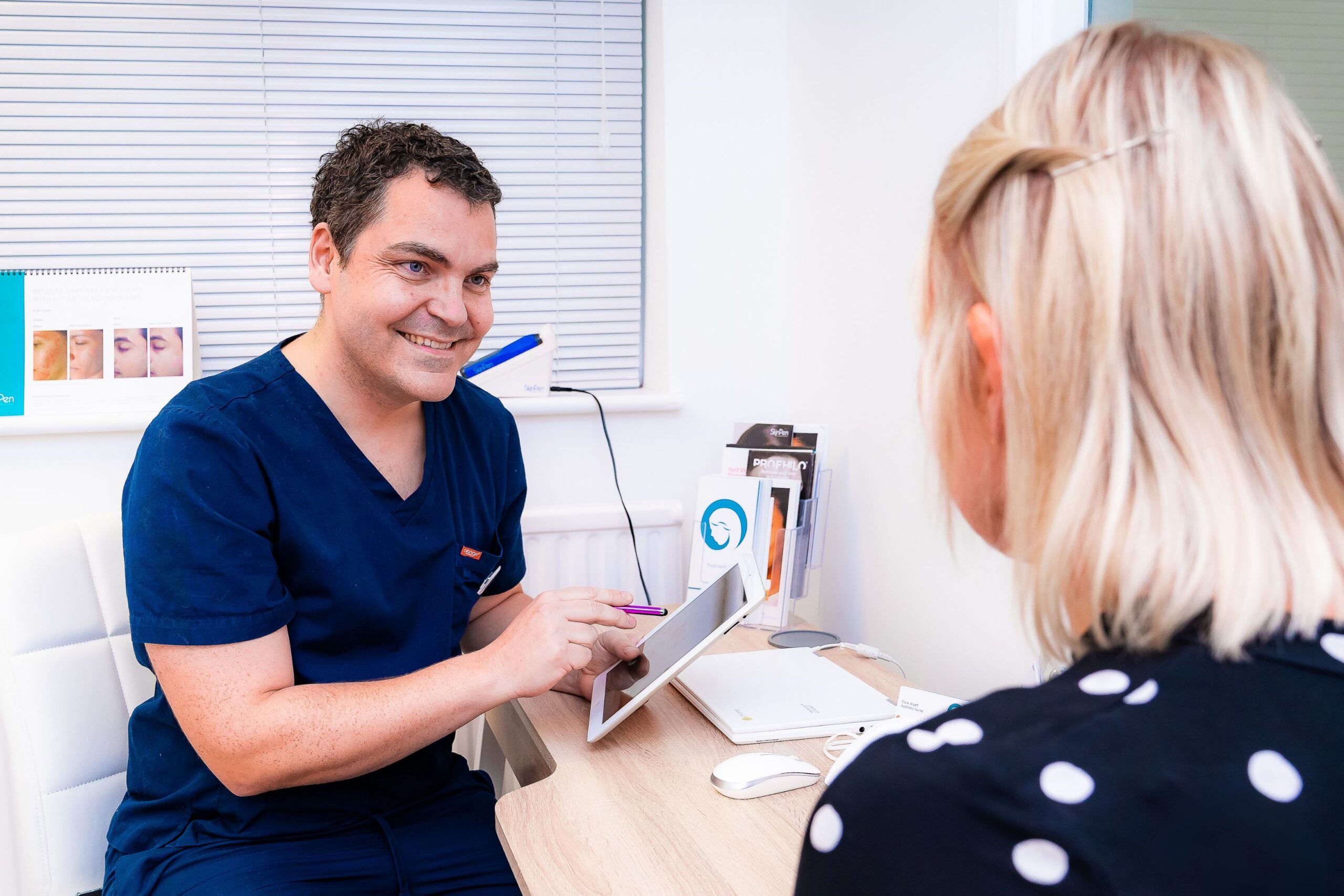
How to Book a Consultation
Stress and acne are undeniably linked, and managing both on your own may not always be enough, especially if breakouts are persistent or severe. Here at Freyja Medical we can provide valuable insights and recommend a combination of topical treatments, medications, or procedures to control acne and reduce inflammation.
- For mild acne: A skincare consultation can help develop a personalised routine.
- For severe or persistent acne: A dermatology consultation is recommended for a tailored treatment plan.
Managing stress through exercise, mindfulness, and social support, combined with a consistent skincare routine and a healthy lifestyle, can help keep acne flare-ups at bay.
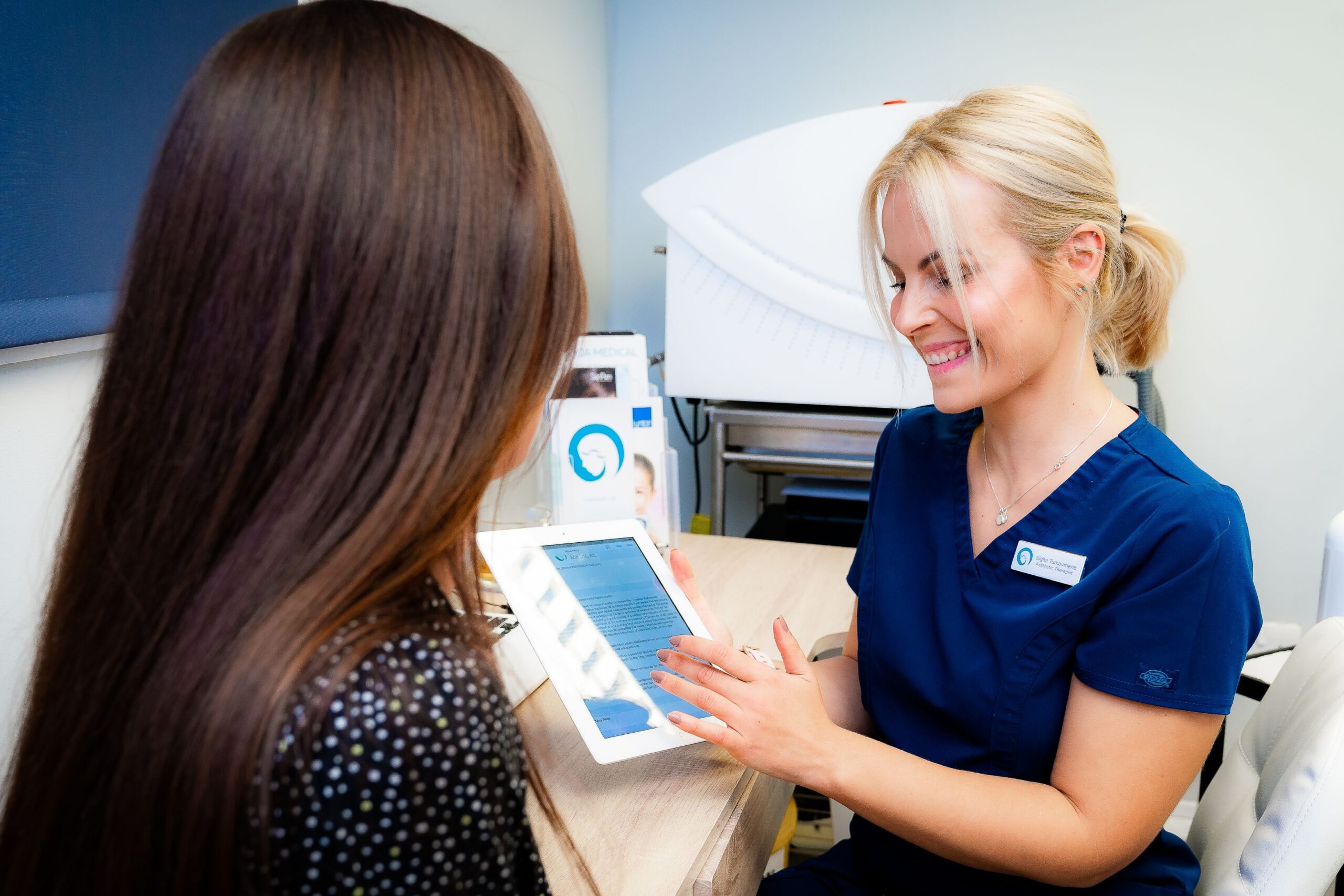
If you’re ready to take control of your skin, book a consultation with one of our experts today by clicking here or by contacting us directly:
☎️ 01978 799688


